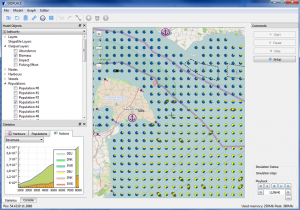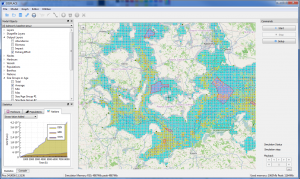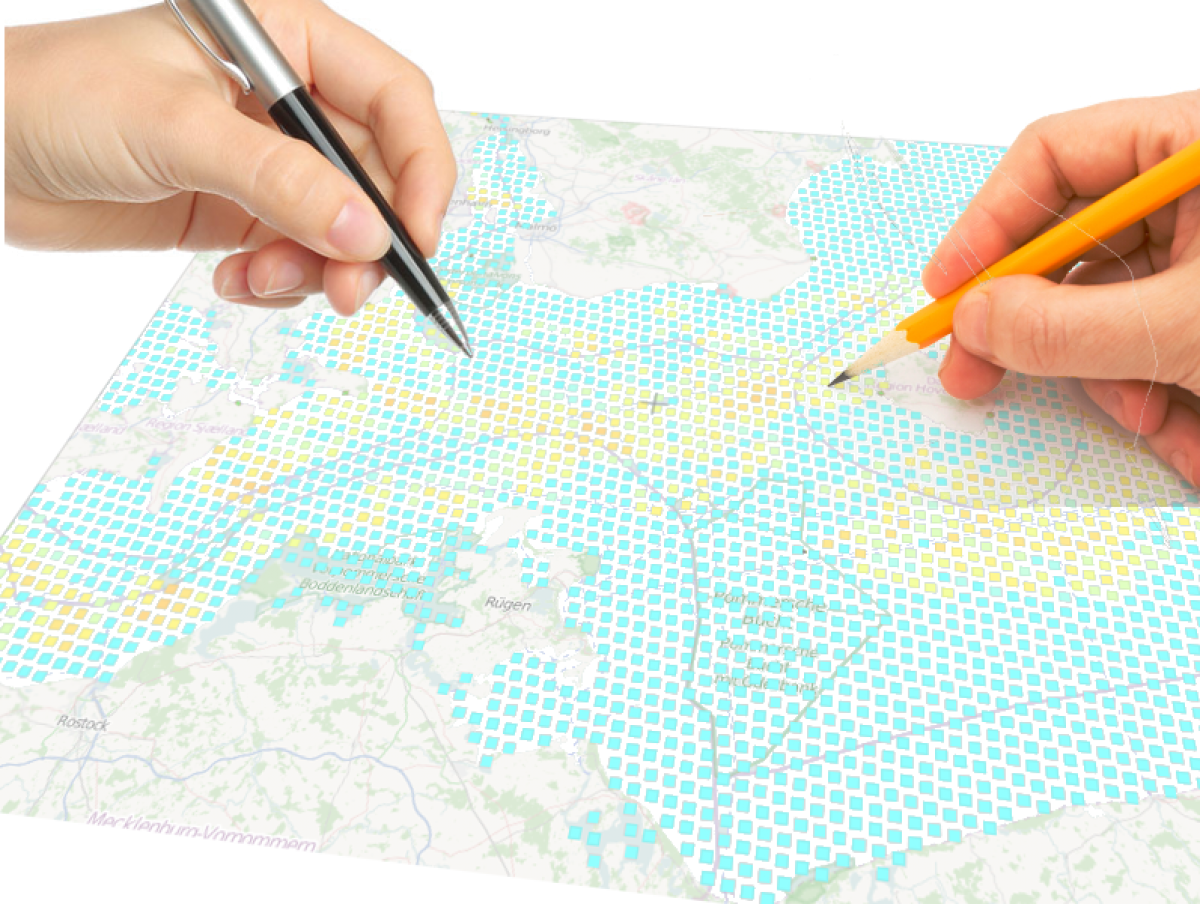In the competition for marine space, the fishing sector needs to prepare for management impacts from other directives than the EU Common Fishery Policy. Our purpose is to support the sector-specific stakeholders and policymakers and provide them with a tool for evaluating the spatial planning and management scenarios and spatial explicit fishery dynamics. This tool is informed by the different types of fishing activities and other activities occupying marine space. The tool is designed to assist optimal decision making in reaction to stock fluctuations, changes in available space for fishing, and management actions, at the finest scale available. The model offers a detailed level of understanding on how stable profits and more energy efficient fisheries are  possible, even if a zonation reduces the fishing opportunities and the number of fishing grounds. The model further contributes to the coordination and integration of different spatial activities in certain sea areas and reduces potential inefficient management and use of space according to the aims of the EU MSP directive.
possible, even if a zonation reduces the fishing opportunities and the number of fishing grounds. The model further contributes to the coordination and integration of different spatial activities in certain sea areas and reduces potential inefficient management and use of space according to the aims of the EU MSP directive.
 Source: Bastardie, F., Nielsen, J. R., Eigaard, O. R., Fock, H. O., Jonsson, P., and Bartolino, V. Competition for marine space: modelling the Baltic Sea fisheries and effort displacement under spatial restrictions. – ICES Journal of Marine Science, doi: 10.1093/icesjms/fsu215. (here or here)
Source: Bastardie, F., Nielsen, J. R., Eigaard, O. R., Fock, H. O., Jonsson, P., and Bartolino, V. Competition for marine space: modelling the Baltic Sea fisheries and effort displacement under spatial restrictions. – ICES Journal of Marine Science, doi: 10.1093/icesjms/fsu215. (here or here)

Francois Bastardie is a DTU-Aqua Senior Scientist and method developer in the Section of Ecosystem-based Marine Management with a Ph.D. in Biological Science. He has been involved in several national and EU Funded projects developing expertise in spatial fisheries and fisheries databases. He has a strong background in modeling fishing and the bio-economic dynamics including developing agent-based models for combining marine ecosystems and natural resource extraction models, fisheries economics in a mixed fisheries perspective. He has an experience of 10 years leading to more than 35 peer-reviewed publications by conducting scientific-based fisheries management evaluation with scenario-testing evaluation and simulations, including fleet dynamics and consequences on the economy of fisheries, population dynamics and fish stock assessment. He was in charge of the evaluation of some of the EU long-term fisheries management plans with consequent participation to ICES and STECF working groups, including giving advise from regional to international policy makers.

Author: Francois Bastardie
Francois Bastardie is a DTU-Aqua Senior Scientist and method developer in the Section of Ecosystem-based Marine Management with a Ph.D. in Biological Science. He has been involved in several national and EU Funded projects developing expertise in spatial fisheries and fisheries databases. He has a strong background in modeling fishing and the bio-economic dynamics including developing agent-based models for combining marine ecosystems and natural resource extraction models, fisheries economics in a mixed fisheries perspective. He has an experience of 10 years leading to more than 35 peer-reviewed publications by conducting scientific-based fisheries management evaluation with scenario-testing evaluation and simulations, including fleet dynamics and consequences on the economy of fisheries, population dynamics and fish stock assessment. He was in charge of the evaluation of some of the EU long-term fisheries management plans with consequent participation to ICES and STECF working groups, including giving advise from regional to international policy makers.
View all posts by Francois Bastardie
 possible, even if a zonation reduces the fishing opportunities and the number of fishing grounds. The model further contributes to the coordination and integration of different spatial activities in certain sea areas and reduces potential inefficient management and use of space according to the aims of the EU MSP directive.
possible, even if a zonation reduces the fishing opportunities and the number of fishing grounds. The model further contributes to the coordination and integration of different spatial activities in certain sea areas and reduces potential inefficient management and use of space according to the aims of the EU MSP directive. Source: Bastardie, F., Nielsen, J. R., Eigaard, O. R., Fock, H. O., Jonsson, P., and Bartolino, V. Competition for marine space: modelling the Baltic Sea fisheries and effort displacement under spatial restrictions. – ICES Journal of Marine Science, doi: 10.1093/icesjms/fsu215. (here or here)
Source: Bastardie, F., Nielsen, J. R., Eigaard, O. R., Fock, H. O., Jonsson, P., and Bartolino, V. Competition for marine space: modelling the Baltic Sea fisheries and effort displacement under spatial restrictions. – ICES Journal of Marine Science, doi: 10.1093/icesjms/fsu215. (here or here)
